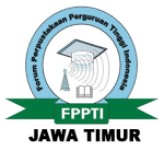Strengthening health information dissemination methods for fisherfolk in rural communities in Ghana
Downloads
Background of the study: Fisherfolk are often exposed to physical hazards, environmental changes, economic fluctuations, and policy/regulatory changes while contributing to food security and economic development.
Purpose: The study aimed to explore challenges in and ways to strengthen health information dissemination methods for fisherfolk in rural Ghana.
Method: This study utilised a case study design with 26 participants from three rural fishing communities in Ghana's Keta Municipal District. Qualitative data was collected through interviews with five public health workers as well as focus group discussions with 21 fisherfolk. The study employed purposive and convenience sampling methods for the selection of participants. Data collected from the participants were analysed through the use of thematic analysis.
Findings: The study revealed that fisherfolk depended on interpersonal and media sources to meet their multidimensional health information needs. Public health officials also leveraged interpersonal approaches to disseminate information to these communities. However, the fisherfolks encountered infrastructural and other barriers that hindered their ability to obtain health information.
Conclusion: The study highlights the need to tailor health information dissemination approaches to the needs and preferences of fishing communities while strengthening the rural information infrastructure by the Ghana Health Service to more effectively disseminate and expand access to health information in these settings.
Downloads
Abernethy, K. E., Trebilcock, P., Kebede, B., Allison, E. H., & Dulvy, N. K. (2010). Fuelling the decline in UK fishing communities? ICES Journal of Marine Science, 67(5), 1076–1085. https://doi.org/10.1093/icesjms/fsp289
Achampong, E. K. (2012). The state of information and communication technology and health informatics in Ghana. Online Journal of Public Health Informatics, 4(2).
Africa. Information Development, 39(3), 638-658.Ministry of Health. (2022). National policy: Non-communicable diseases. In Ministry of Health, Ghana (p. 45). https://www.moh.gov.gh/wp-content/uploads/2022/05/Ghana-NCD-Policy-2022.pdf
Alhassan, R. K., Nketiah-Amponsah, E., & Arhinful, D. K. (2016). A review of the National Health Insurance Scheme in Ghana: what are the sustainability threats and prospects?. PloS one, 11(11), e0165151.
Anasi, S. N. (2004). Audiovisual media capabilities and the dissemination of health information. Library Focus, 22.
Anasi, S. N. (2012). Access to and dissemination of health information in Africa: The patient and the public. Journal of Hospital Librarianship, 12(2), 120-134.
Aryee, K. L. (2014). The role of mobile phones in health education for rural communities in Ghana: An exploratory study in digital technologies. The University of Western Ontario (Canada).
Asumeng, M. A., & Folitse, B. Y. (2019). Occupational hazards, safety culture and behaviour: A study of fishermen in Jamestown, Accra. Ghana Social Science Journal 16(June 2019):1–22.
Aturinde, A., Farnaghi, M., Pilesjö, P., & Mansourian, A. (2019). Spatial analysis of HIV-TB co-clustering in Uganda. BMC infectious diseases, 19, 1-10.
Bannor, R., Asare, A. K., & Bawole, J. N. (2017). Effectiveness of social media for communicating health messages in Ghana. Health Education, 117(4), 342-371.
Béné, C., Devereux, S., & Roelen, K. (2015). Social protection and sustainable natural resource management: initial findings and good practices from small-scale fisheries. FAO Fisheries and Aquaculture Circular, (C1106), I.
Berkowsky, R. W., & Czaja, S. J. (2018). Challenges associated with online health information seeking among older adults. In Aging, technology and health (pp. 31-48). Academic Press.
Bosompra, K. (1989). Dissemination of health information among rural dwellers in Africa: A Ghanaian experience. Social Science & Medicine, 29(9), 1133–1140. https://doi.org/10.1016/0277-9536 (89)90027-0
Bunn, C., Kalinga, C., Mtema, O., Abdulla, S., Dillip, A., Lwanda, J., Mtenga, S. M., Sharp, J., Strachan, Z., & Gray, C. M. (2020). Arts-based approaches to promoting health in sub-Sharan Africa: a scoping review. BMJ Global Health, 5(5), e001987. https://doi.org/10.1136/bmjgh-2019-001987
Champion, V. L., & Skinner, C. S. (2008). The health belief model. Health Behavior and Health Education: Theory, Research, and Practice, 4, 45–65.
Czaja, S. J., Boot, W. R., Charness, N., Rogers, W. A., & Sharit, J. (2017). Improving social support for older adults through technology: Findings from the PRISM randomized controlled trial. The Gerontologist/the Gerontologist, 58(3), 467–477. https://doi.org/10.1093/geront/gnw249
Czaja, S. J., Boot, W. R., Charness, N., Rogers, W. A., & Sharit, J. (2018). Improving social support for older adults through technology: Findings from the PRISM randomized controlled trial. The Gerontologist, 58(3), 467-477.
Davis, M. E. (2012). Perceptions of occupational risk by US commercial fishermen. Marine Policy, 36(1), 28-33. doi: 10.1016/j.marpol.2011.03.005.
Elwy, A. R. (2018). Dissemination strategies for health services researchers.
Nigeria. International Journal of Research in Library Science, 6(2), 37. https://doi.org/10.26761/ijrls.6.2.2020.1333
Etebu, A. T. (2020). Investigation of information dissemination mechanisms (IDM) for rural dwellers in Bayelsa State, Southern Nigeria. Library Philosophy and Practice, 2020(Idm), 1–20.
Fayoyin, A. (2016). Engaging social media for health communication in Africa: Approaches, results, and lessons. Journal of Mass Communication & Journalism, 6(6). https://doi.org/10.4172/2165-7912.1000315
Ifukor, M O., & Omogo, M. (2013). Channels of information acquisition and dissemination among rural dwellers. International Journal of Library and Information Science, 5(10), 306–312. https://doi.org/10.5897/IJLIS11.036
Ikoja-Odongo, R., & Ocholla, D. N. (2003). Information needs and information-seeking behaviour of artisan fisher folk of Uganda. Library and Information Science Research, 25(1), 89–105. https://doi.org/10.1016/S0740-8188(02)00167-6
Jimam, N. S., & Teyiremi, J. A. (2015). Health information needs and health information seeking behaviour of the residents of Jos and environs. World Journal of Pharmaceutical Research, 4(7), 10-18.
Kankam, P. K., Adjei, E., & Dei, D. J. (2024). Evaluation of health information needs and dissemination among market women in rural communities in Ghana. Cogent Social Sciences, 10(1). https://doi.org/10.1080/23311886.2024.2350136
Kyeremeh, K. A. (2016). Rural women’s exposure to health messages and understandings of health. Journal of Healthcare Communications, 1(3). https://doi.org/10.4172/2472-1654.100018
LaMorte, W. W. (2022). The health belief model. Behavioral Change Models. https://sphweb.bumc.bu.edu/otlt/mphmodules/sb/behavioralchangetheories/behavioralchangetheories2.html#:~:text=The HBM suggests that a,person will adopt the behavior.
Lu, N., Samuels, M. E., Kletke, P. R., & Whitler, E. T. (2010). Rural-urban differences in health insurance coverage and patterns among working-age adults in Kentucky. ˜The œJournal of Rural Health/the Journal of Rural Health, 26(2), 129–138. https://doi.org/10.1111/j.1748-0361.2010.00274.x
Mapiye, O., Makombe, G., Molotsi, A., Dzama, K., & Mapiye, C. (2023). Information and communication technologies (ICTs): The potential for enhancing the dissemination of agricultural information and services to smallholder farmers in sub-Saharan
Mtega, W. P., & Ronald, B. (2013). The state of rural information and communication services in Tanzania: A meta-analysis. Journal of Information and Communication Technology Research, 3(2), 64–73.
Neethiselvan, R., S, G., & P, S. (2021). Assessment of health seeking behaviour among fishermen community in Puducherry. International Journal of Community Medicine and Public Health/International Journall of Community Medicine and Public Health, 8(2), 732. https://doi.org/10.18203/2394-6040.ijcmph20210230
Obeng, G. M. (2018). Self-reported health status of fish smokers at Abuesi, a fishing community in the western region of Ghana (Doctoral dissertation, University of Cape Coast).
Peprah, P., Abalo, E. M., Agyemang-Duah, W., Budu, H. I., Appiah-Brempong, E., Morgan, A. K., & Akwasi, A. G. (2020). Lessening barriers to healthcare in rural Ghana: Providers and users’ perspectives on the role of mHealth technology. A qualitative exploration. BMC Medical Informatics and Decision Making, 20(1). https://doi.org/10.1186/s12911-020-1040-4
Polychronis, M. (2015). The limitations of Ghana’s rural health care access: Case study: Ga East, Greater Accra. Global Futures: International Policy Network. Republic of Ghana, & United Nations. (2022). Ghana 2022 voluntary national review report on the implementation of the 2030 Agenda for Sustainable Development.
Rodiah, S., Budiono, A., & Komariah, N. (2019). Dissemination of health information through community empowerment. Journal of Sustainable Development, 12(2), 13. https://doi.org/10.5539/jsd.v12n2p13
Sanni, S., & Neema, R. (2020). Challenges to health information dissemination in Tanzania and the opportunities provided by Chatbot in Swahili Language. Journal of Applied Sciences, Information, and Computing (JASIC), 1(2). https://doi.org/10.1186/s12889-020-10017-8
Seidu, A. A., Darteh, E. K. M., Agbaglo, E., Dadzie, L. K., Ahinkorah, B. O., Ameyaw, E. K., Tetteh, J. K., Baatiema, L., & Yaya, S. (2020). Barriers to accessing healthcare among women in Ghana: a multilevel modelling. BMC Public Health, 20(1). https://doi.org/10.1186/s12889-020-10017-8
Sokey, P. P., & Adisah-Atta, I. (2017). Challenges confronting rural dwellers in accessing health information in Ghana: Shai Osudoku District in perspective. Social Sciences, 6(2), 66. https://doi.org/10.3390/socsci6020066
Sokey, P., Adjei, E., & Ankrah, E. (2018). Media use for health information dissemination to rural communities by the Ghana Health Service. http://ugspace.ug.edu.gh/handle/123456789/30058
Sokey, P. P. (2016). Media for health information dissemination to rural communities by the Ghana Health Service. A study of the Shai Osudoku District of the Greater Accra Region. http://ugspace.ug.edu.gh/handle/123456789/21638
Sulemana, A., Dinye, R. D., & Nkrumah, K. (2014). Access to healthcare in rural communities in Ghana: a study of some selected communities in the Pru district. European Journal of Research in Social Sciences 2(4):122–32.
Townhill, B., Harrod, O., Painting, S., Acheampong, E., Bell, J., Nyarko, B. K., & Engelhard, G. (2023). Climate change risk and adaptation for fisher communities in Ghana. Journal of Coastal Conservation, 27(5), 45.
Tsehay, A. B. (2014). Seeking health information in rural context: Exploring sources of maternal health information in rural Ethiopia. http://bora.uib.no/bitstream/1956/8215/1/120975036.pdf
Urich, A. (2017). Methods for stress management. Pennsylvania State University.
Woodhead, A. J., Abernethy, K. E., Szaboova, L., & Turner, R. A. (2018). Health in fishing communities: A global perspective. Fish and Fisheries, 19(5), 839–852. https://doi.org/10.1111/faf.12295
Copyright (c) 2024 Eugene Addo, Emmanuel Adjei, Philip Kwaku Kankam

This work is licensed under a Creative Commons Attribution-ShareAlike 4.0 International License.
Record and Library Journal by Unair is licensed under a Creative Commons Attribution-ShareAlike 4.0 International License.
1. The journal allows the author to hold the copyright of the article without restrictions.
2. The journal allows the author(s) to retain publishing rights without restrictions
3. The legal formal aspect of journal publication accessibility refers to Creative Commons Attribution Share-Alike (CC BY-SA).
4. The Creative Commons Attribution Share-Alike (CC BY-SA) license allows re-distribution and re-use of a licensed work on the conditions that the creator is appropriately credited and that any derivative work is made available under "the same, similar or a compatible license”. Other than the conditions mentioned above, the editorial board is not responsible for copyright violation.




























